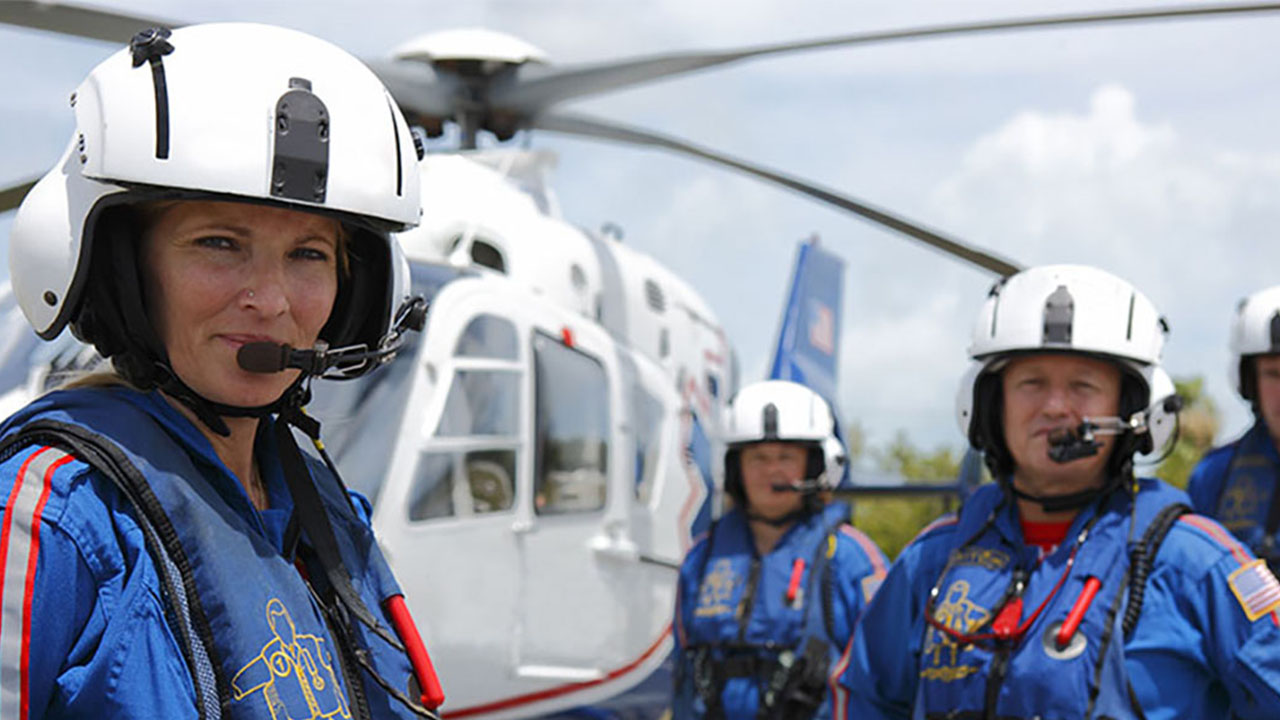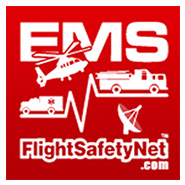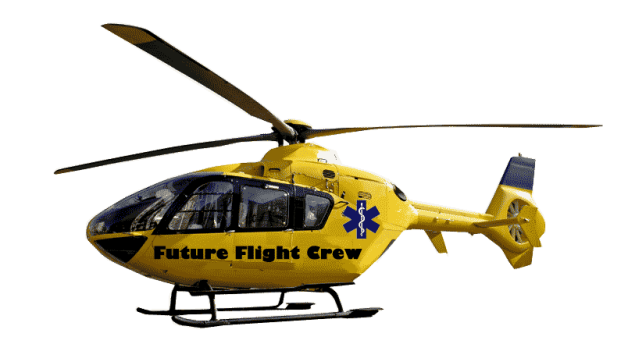Wouldn’t it be great…
If getting a flight job were easy?
As simple as, follow these 3 easy steps….
and here are your flight medic wings.
That would be really nice, right?
It would also be really convenient for doctors, nurses, paramedics and pilots who dream of flying air medical.
Unfortunately, it’s not easy. Earning a flight job is hard work.
Sorry to disappoint, but that’s the truth.
But there is some good news for folks who want to fly. There are specific habits we’ve observed in almost all successful wannabe and active flight crews. The good news is that with a little bit of effort, you can learn these habits quickly and easily.
That’s what this article is about.
Habits you can learn to help you get a flight job.
It’s hard to believe, but Stephen Covey’s original “7 Habits of Highly Effective People” is now over 27 years old. It’s still one of the definitive guides for self improvement, and I would feel remiss if I didn’t mention it. You can pick up a copy of Stephen Covey’s book on Amazon.
So what are the 7 habits of highly effective future flight crew?
Here ya go:
The seven habits of highly effective future flight crew:
1.) Wake Up Early
It almost sounds too simple, right?
Can waking up early really help you get a flight medic job?
The answer is simple and easy.
Yes, it can. Because there is a direct link between getting up early and getting stuff done.
The many benefits to waking early are well documented. A simple Google search will give you a day’s worth of research material, so I won’t cover it here.
What’s the easiest way to get started? Go to bed an hour earlier.
Know up front it may take several days to get used to waking earlier. Stick to a plan of at least 21 days. You’ll be pleasantly surprised by how much more you get done every day.
2.) Do Important Stuff First
Admit it. You’re one of those people who completes a task, and then sometimes adds the task to your to-do list AFTER its already done, right?
Why would you or anyone do this?
Because like me, you still look forward to that little surge of happiness from the dopamine release when you check the task off your list. It’s okay. We’ll keep it our little secret.
But here’s a habit you do need to fix. If you’re just as guilty of carrying to-do list tasks forward to the next day or week, you’re probably also guilty of doing the easy stuff first.
Don’t do the easy stuff first.
Do the important stuff first. If you have to carry an important task over to the next day or week, keep working this task first, until it gets done. Otherwise, you’ll keep filling up your “done list” with the easy stuff, or urgent stuff, and never actually get to the important stuff.
Make sense? It’s important you understand it (please excuse the pun).
3.) Network
Successful future flight crew rarely go it alone. They typically have huge networks of friends and family willing to help them with almost any goal.
Or, if they have smaller networks of family and friends, they rely on extended professional networks to help them accomplish professional goals.
How do you network?
It’s really as simple as helping other people. Connect two people who you know have similar goals. Send a link to an article to someone you know would appreciate it. Two simple techniques our coaching group has had tremendous success doing.
The hidden benefit to networking – in addition to building a network of people who will help you with almost anything, you’ll reap the psychological benefits of giving.
4. Get A Mentor
Successful crews (and wannabes) know how much they don’t know. Or at least they know it’s impossible to keep up with everything that matters to them.
So how do they compensate?
They find a mentor who has already accomplished what they want to accomplish. Mentorships range from simple and free to complex and expensive. It’s a different experience for everyone, because everyone starts with a different level of experience.
The good news is that it’s now easy to find quality mentors in almost every field or discipline.
We offer professional mentoring at EMS Flight Safety Network. It’s called Insider Training program. It’s currently closed, but you can sign up to be notified when we re-open the doors, here.
In most cases, I do not recommend you jump straight into a paid coaching program. Start by asking people you respect in EMS and air medical for some helpful tips and pointers.
5. Give Back
Successful people understand gratitude.
They inherently know (or learned the hard way) the “secret” to flight crew and life success.
What is the secret?
Gratitude.
Be thankful for all you’ve accomplished up until now. Count your blessings regularly. Gratitude matters and it changes your perspective in very positive ways. Most importantly, show your gratitude by giving back to EMS.
Ever noticed how the seemingly busiest EMSers are also the ones who give the most of their time? The high profile folks who run companies, run marathons and write books still have time to give back. Why?
Because they know the secret. Now you know it too.
6. Exercise
This habit almost speaks for itself. The benefits of exercise are so great I almost don’t need to mention it.
Almost.
But since I describe myself as a middle-aged “see-saw exerciser” who sometimes has to re-prove the benefits of exercise to myself…
I thought you might appreciate a reminder too.
Exercise is the closest thing we have to a miracle drug for productivity and getting stuff done. If you’re not already exercising, consider starting immediately.
This habit can and does change lives.
7.) Self Educate
Successful future flight crew commit to self-education. They realize self-education is one part of the entry fee to becoming a professional.
Think about it. What profession doesn’t require formal continuing education? None.
Successful future flight crew typically commit to self-education beyond what their employer requires. The most successful fall in love with it. They make self-education part of their lives and daily routine.
What if school isn’t your thing? What if you don’t like to read?
First of all, realize self-education isn’t school. Self-education really can be fun. Find a medium that fits your learning style. Don’t like to read? Start with a basic subscription to an audio book club. Start with books you know you’ll like. A mix of education and entertainment. Make it fun.
Once you develop the habit, slowly shift from entertainment audio books to educational audio books.
Do The 7 Habits Work
I can hear the moans through the monitor. And it’s a fair question. Do the 7 habits of highly effective future flight crew really work?
The answer is yes. And it’s an easy answer to give. Because it’s not my opinion. It’s the results of coaching hundreds of doctors, nurses, paramedics and pilots into air medical careers.
We scrutinized every successful applicants’ background. The 7 habits are what we found. Is it scientifically proven? No, of course not.
But the 7 habits are our best estimate of success. It’s a very good starting point if you’re interested in flying some day.
Wake up early, do important stuff first, network, get a mentor, give back, exercise and self-educate.
None are difficult to do. But all require a certain amount of focus and effort.
Give it a try. Air medical needs good people. The only thing holding you back is you.
[divider style=”4″]
Are you serious about flying air medical? Get EMS flight job tips and advice sent straight to your inbox? Get The Net newsletter. Sign up here (it’s free):
[shortcode-variables slug=”optin-form”]


